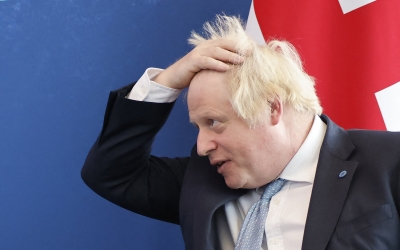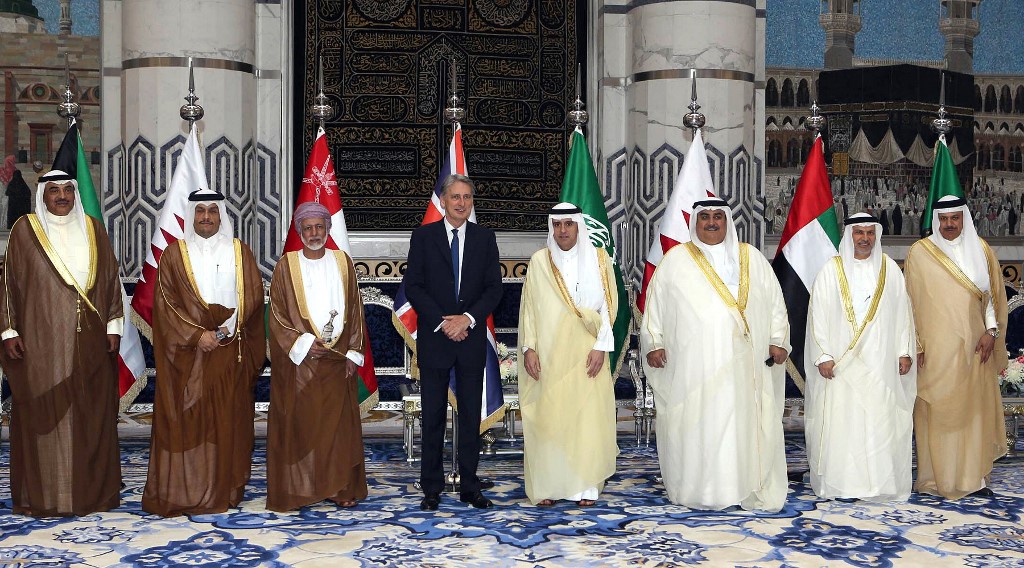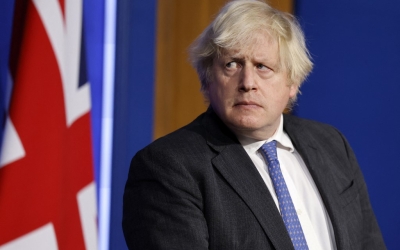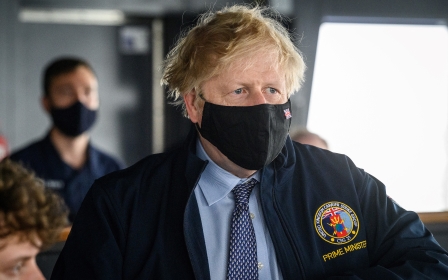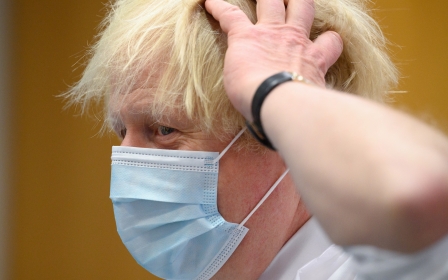My vision for a new Conservative network in the Middle East
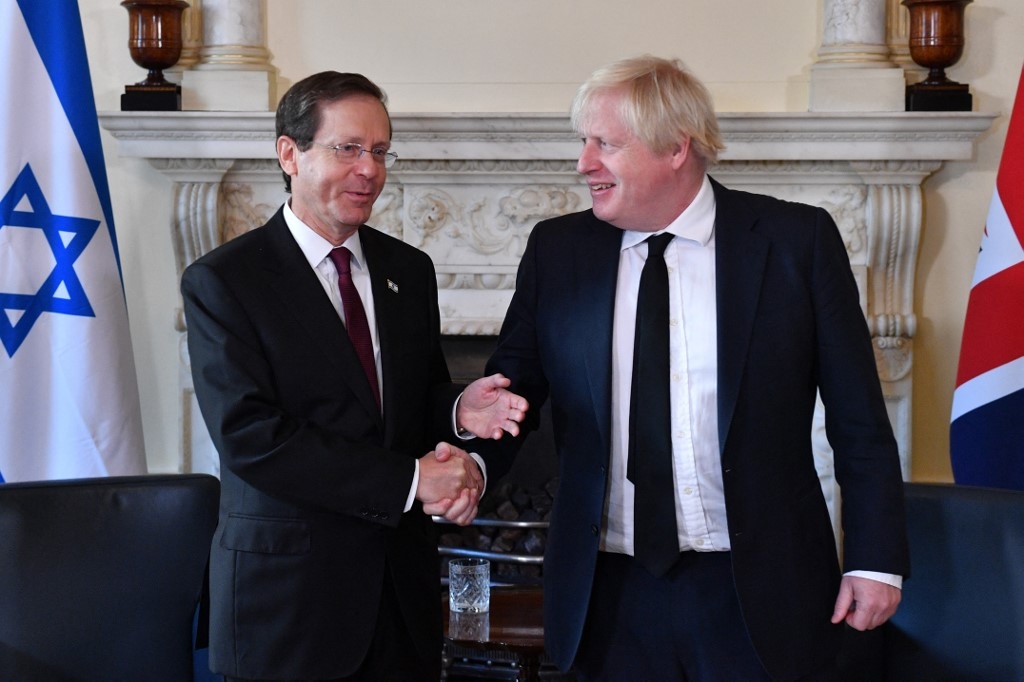
The Middle East is on a hair-trigger and the threat of the biggest regional conflict for a generation remains very real if the Vienna nuclear talks stall.
Whilst the Abraham Accords were a positive development, there are many issues of concern: the retrenchment from the Middle East by the US; the Afghanistan debacle; the failing states of Iraq, Lebanon and Libya; the failed states of Yemen and Syria.
With its long history in the region, the UK has relationships that could give it an advantage over the EU and other trading blocs
When you factor in the move away from hydrocarbons, the advent of social media, the declining role of mainstream religion and an associated rise in extremism and massive youth unemployment, you have a combustible cocktail. Meanwhile, China and Russia stand ready to fill the vacuum.
This alone should be enough to make the Middle East a key area of foreign policy for the UK’s Conservative government, but in addition, the region is crucial to its ambitions of promoting a "Global Britain" in the post-Brexit trading world. With its long history in the region, the UK has relationships that could give it an advantage over the European Union and other trading blocs, but only if they are deployed judiciously.
Conservatives and the Middle East
New MEE newsletter: Jerusalem Dispatch
Sign up to get the latest insights and analysis on Israel-Palestine, alongside Turkey Unpacked and other MEE newsletters
As the oldest democratic party in the world, the Conservatives’ reputation extends far beyond the UK’s borders, but for this reason, it also needs to think very carefully about how it allows itself to be represented.
The Conservative Middle East Council (CMEC) was established in 1980 during Margaret Thatcher’s premiership to foster a better understanding of issues in Palestine and the wider Middle East and for a long time it played an important role in the party. But in recent years CMEC has strayed from its founding principles, abandoning the original reasons for its formation, and critics have suggested that it has morphed from a pan-region friendship group into a group that arranges junkets, with opaque funding.
A 2016 Middle East Monitor investigation noted that, at that time, nearly all of CMEC’s financial backers had strong business interests in the Gulf states, to the detriment of North Africa, the Levant and the non-Arab MENA states, and “this suggests that the support by CMEC for an unconditional relationship with Saudi Arabia could be driven by donor preferences”. Whether or not that report was right, it is my view that the interests of, and understanding of the whole region, are not being adequately addressed by CMEC.
CMEC disaffiliated from the Conservative Party in 2019. It has changed its status to a limited liability company, with a membership made up mostly of non-Conservatives, and the ability to lobby and charge fees for its services, which puts it in breach of the Conservative Party constitution. It therefore operates outside the Conservative Party yet retains “Conservative” in its name.
Controversial trip
Middle East Eye recently reported that CMEC facilitated a controversial all-expenses-paid trip by four British MPs and other former and present CMEC associates to Bahrain to attend the Manama Dialogue last November. Bahraini activists strongly criticised the trip, arguing that by accepting hospitality the MPs had made it impossible to raise concerns about the regime’s human rights record.
In 2020, I was asked to discuss the establishment of a new organisation fully affiliated to the Conservative Party, with the objective of promoting understanding and cooperation between the party and the 22 countries comprising the MENA region. My career as a lawyer, financier and telecommunications entrepreneur has taken me to all but one of those 22 countries, and I felt I could use my knowledge and network to strengthen the UK’s ties with this strategically important part of the world.
Following this request, I had the opportunity to discuss at great length with several former and serving parliamentarians a “points of compass” framework for bringing peace and prosperity to the Middle East, in the first instance, and thereafter North Africa. In essence, this would involve the UK using its permanent seat on the UN Security Council (as one of the "P5" countries) to convene a dialogue amongst the P5, the EU, and four countries that make up the key points of a compass: Turkey to the north, Israel to the west, Saudi Arabia to the south and Iran to the east.
These four countries are the key protagonists, without whom everlasting resolution to the myriad problems that the Middle East faces would not be possible. Each would be asked to set out on one side of A4 what it wants from the other and what it would give in return. While this did attract scepticism and ridicule in some quarters, it is better to dream during the day than at night!
Senior figures back Comena
Coming to the new group, Conservative Friends of the Middle East and Africa (Comena), there was strong support for it. I discussed its formation twice with the prime minister. Subject to it being affiliated with the party and acting at all times in compliance with its constitutional framework and rules, more than 100 parliamentarians, diplomats and Middle East experts expressed interest in membership.
Prominent names among these included former prime minister Theresa May, former chancellor Lord Lamont, Baroness Morris, Lord Lister, Lord Astor, Mark Garnier, Hugo Swire, Mark Menzies, Flick Drummond, and former senior FCDO officials such as Jamie Bowden and Clovis Meath-Baker.
The vision is all-encompassing and embraces the entire MENA region without exception. No funding or funders would be allowed to dictate the agenda
My vision is for a friendship group that organises exchange visits, lectures and cultural events to promote a greater understanding of the region and stronger ties between the Conservative Party and members of the Arab Diplomatic Corps in London, opinion leaders across the Arab world, and with the MENA diaspora in the UK. This is important because the new crop of MPs knows so little about the Middle East. The vision is all-encompassing and embraces the entire MENA region without exception. No funding or funders would be allowed to dictate the agenda.
A friendship group exists to foster shared networks and mutual trust and should not be a partisan organisation trying to drive policy decisions. The MENA region is culturally rich, but disparate; events often unfold at a bewildering pace and our knowledge of the region needs to be up-to-date and underpinned by real-world experience.
Regrettably, CMEC’s director, Charlotte Leslie, who had initially offered me an opportunity to support one of her fundraising events, seems to have regarded the emergence of Comena as a threat to her organisation’s future and to herself. In December 2020, it came to my attention that memos critical of me, the contents of which I reject completely, had been circulated to parliamentarians, Arab ambassadors in London and security officials.
Libel case
This marked the start of an orchestrated campaign against me. The turf war fought by CMEC continues to this day, deploying a wide range of methods, including media lobbying, and asserting political influence, with the objective of stifling a joint development that I had agreed with the Conservative Party. Although I was prepared to resolve the matter, several attempts at mediation conducted by senior Conservative Party figures have failed.
Indeed, a senior Arab diplomat suggested that an affiliated Comena focused on politics and business could work alongside a non-affiliated CMEC focused on sports and culture, making it a win-win for all. I readily accepted this proposal but alas CMEC did not.
I have now issued libel proceedings against Charlotte Leslie for defamation. Separately, a Part Seven data protection trial will take place in the High Court this spring, at which I have requested all data held on me is revealed, together with the identity of the recipients of the memos. Charlotte Leslie will be cross-examined in court.
From the outside, this may appear to be unnecessary internecine warfare, but the issues at stake are important.
Filling the void
I have been a long-standing donor to the Conservative Party because I believe in it as a force for good. I was delighted to be asked to set up Comena because I am passionate about the region and see the potential for exerting a positive influence through mutual understanding, cooperation and dialogue.
The UK needs to re-set its relationships in the Middle East and Comena can give this vital work fresh impetus
Unlike CMEC, Comena would be affiliated to the Conservative Party and focus on the entire MENA region, rather than ignoring North Africa and the Levant. Iran, Afghanistan and Turkey would be given the same importance as the Gulf states. Promoting peace and prosperity throughout the region would be our goals.
The UK is looking to reaffirm its place on the world stage and there can no better opportunity than in the Middle East; with the US in retreat, France, Russia and China will become the defining forces if the UK does not step in to fill the void.
The UK needs to re-set its relationships in the Middle East and Comena can give this vital work fresh impetus because it will be a new organisation, focused on the region’s future, not its past.
The views expressed in this article belong to the author and do not necessarily reflect the editorial policy of Middle East Eye.
Middle East Eye delivers independent and unrivalled coverage and analysis of the Middle East, North Africa and beyond. To learn more about republishing this content and the associated fees, please fill out this form. More about MEE can be found here.



